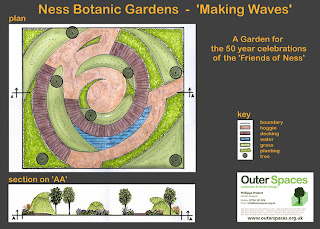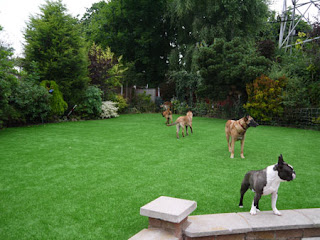As the winter months set in and the weather gets colder it's good to make sure your garden is prepared to withstand the harsher conditions, here are a few tips to get you on your way.
It is a good idea to do any garden repairs before the cold sets in and makes matters worse. Look out for any fence panels that need attention or walls. Applying a coat of all weather paint can be a good idea to give fence panels some added protection. If you have any loose patio or paving slabs, now is the time to get those repaired. Oil treatments can benefit benches and other wooden structures in the garden and if you have patio furniture, cover it up so that this doesn't get damaged during severe weather. The cost of covering it up will be a lot less than having to replace it in the spring.
Both real and artificial lawns can benefit from the removal of any Autumn leaves that have fallen onto the surface. If leaves are left on the grass this can create ideal conditions for moss growth and may also affect drainage. For real grass lawns now is a good time to add an application of fertiliser and to pierce the lawn with a fork to aerate. Aeration enables air to get to the roots of your lawn and will also improve drainage for those heavy down pours. You should also make sure objects such as children's toys are removed from the lawn as this can cause problems when the snow comes. If you've got an artificial lawn, a weed/moss treatment should be applied. The leaves that you remove from your lawn can be used on your beds of perennials to protect them from the frost, it is also a good idea to protect soil beds further with a layer of mulch.
Don't forget the wildlife in your garden in the Winter! Between October and January is the ideal time to clean out your pond and don't let it freeze over completely as a complete freeze will starve any fish of oxygen. A good tip for this is to put a ball on the surface of the water, the area around the ball will freeze but underneath the ball won't. Feeding the birds is a priority in the winter as they find it difficult to find food, they will also take shelter in your hedges so don't cut these back until winter has come to an end. The piles of leaves that you have removed from your lawn will also make good habitats for frogs. If you have any logs or dead wood, pile these up as there are certain critters who will make this their home.
If we get a heavy snow fall during the winter then this is when damage will be caused to the garden. Although the snow acts as an insulator heavy snow can cause damage to leaves and branches. To prevent such damage shake excess snow off if possible and if there is heavy snow sitting on greenhouses or sheds remove as much as possible. This is especially important for greenhouses as heavy snow will prevent light from getting in. Although this is not a problem for artificial grass lawns if your real grass lawn is covered in snow avoid walking on it as this will leave unattractive marks on your lawn once the snow is gone. The same will happen if any objects have been left on the lawn prior to the snow fall, the grass underneath suffocates.



.JPG)



























.JPG)
.JPG)




